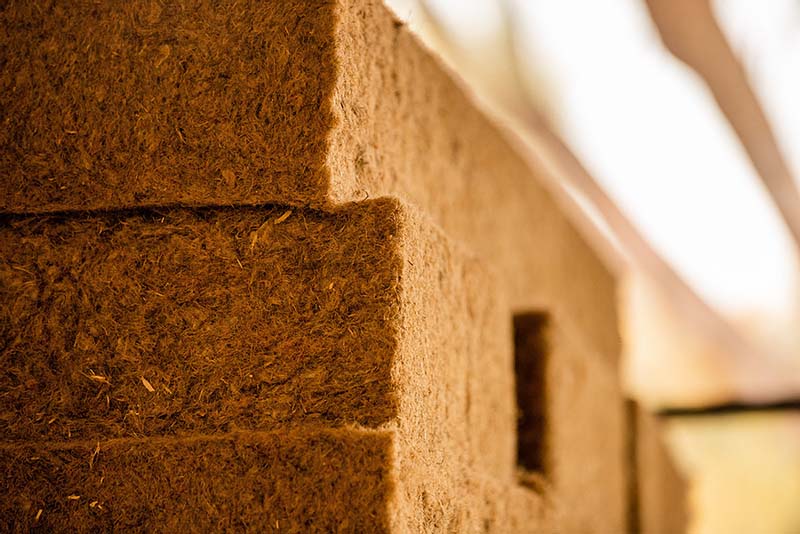The construction industry has been increasingly looking for sustainable alternatives to traditional building materials. Among them, HempWool has been gaining popularity as a natural and eco-friendly solution. HempWool is a versatile material derived from the fibers of the hemp plant, which is known for its fast-growing and low-maintenance properties. In this article, we will explore the benefits of using HempWool as a building material and how it can contribute to a more sustainable future.
Benefits of Using HempWool as a Building Material:
HempWool offers a wide range of benefits that make it an attractive alternative to traditional building materials, including:
- Eco-friendliness: HempWool is a renewable and biodegradable material that doesn’t release harmful pollutants or chemicals during its production, use or disposal. This makes it a great choice for environmentally-conscious builders who want to reduce their carbon footprint and contribute to a greener future.
- Thermal insulation: HempWool has excellent thermal insulation properties, which can help regulate temperature and reduce energy consumption in buildings. It also offers superior sound insulation, making it an ideal material for walls, ceilings, and floors.
- Fire resistance: HempWool is naturally fire-resistant, which means it doesn’t require additional chemicals or treatments to meet fire safety standards. This makes it a safer option for buildings and a better choice for public health and safety.
- Pest and mold resistance: HempWool is naturally resistant to pests, such as rodents and insects, and to mold and mildew growth. This means it doesn’t require additional treatments or chemicals to prevent these issues, which makes it a healthier and safer option for occupants.
- Durability: HempWool is a strong and durable material that can last for many years without significant degradation or wear. It also has a low environmental impact when disposed of at the end of its life cycle.
How HempWool is Used in Construction:
HempWool can be used in a variety of ways in construction, including:
- Insulation: HempWool can be used as an insulation material for walls, roofs, and floors. It is easy to install and can be combined with other materials, such as clay or lime, to create natural and breathable insulation systems.
- Soundproofing: HempWool can be used as a soundproofing material for walls, ceilings, and floors. It absorbs sound waves and reduces noise pollution, making it an ideal choice for buildings located in noisy environments.
- Plastering: Hemp core can be mixed with clay or lime to create a natural and eco-friendly plastering material. It can be used on interior or exterior walls to create a breathable and healthy living environment.
FAQs:
Q: Is HempWool more expensive than traditional building materials?
A: HempWool may be slightly more expensive than some traditional building materials, but its benefits, such as energy savings and improved indoor air quality, can offset the initial cost.
Q: Is HempWool difficult to install?
A: HempWool can be installed using traditional construction techniques and doesn’t require any specialized equipment or skills. However, it may require additional time and effort to install than some conventional materials.
Q: Is HempWool suitable for all types of buildings?
A: HempWool is suitable for a wide range of buildings, from residential to commercial and industrial. However, its specific use and application may depend on the building’s design, location, and requirements.
Conclusion:
Using HempWool as a building material offers a sustainable and innovative solution for the construction industry. Its eco-friendliness, thermal and sound insulation properties, fire and pest resistance, and durability make it an attractive alternative to traditional materials. HempWool is also easy to install and can be used for insulation, soundproofing, and plastering. Although it may be slightly more expensive than some conventional materials, its long-term benefits, such as energy savings and improved indoor air quality, can outweigh the initial cost. HempWool is a versatile and promising material that can contribute to a greener and more sustainable future for the construction industry. By using hempWool, builders can not only reduce their environmental impact but also create healthier and more comfortable living and working environments. The use of HempWool as a building material is a step towards a more sustainable and eco-friendly future.

